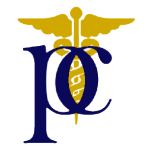
OCD, Obsessive Compulsive Disorder, is a mental illness involving intrusive thoughts, distressing emotions and compulsions. Intrusive thoughts are the “obsession” piece of OCD. These thoughts or “obsessions” are not desired by an individual but they are incapable of ignoring or stopping them.
Obsessive thoughts can lead one to feel distressing emotions such as fear, disgust, anxiety or guilt. In order to relieve oneself from these distressing emotions, individuals are driven to “compulsions.” Compulsions are the part of OCD defined as physical activities or cognitive behaviors that are performed most often in a ritualistic, routine way, in order to temporarily relieve oneself from the anxiety brought on by the obsessions.
Frustrated patients end up in the OCD cycle, performing their compulsive behavior repeatedly in order to gain some temporary relief. Effective treatments for OCD include Cognitive Behavior Therapy and prescribed medication. Cognitive Behavior Therapy may help some people challenge their thinking and break the cycle of obsessive thoughts and compulsive behaviors. However, some patients may not respond to CBT and may require another type of treatment for OCD.
When CBT and medications don’t work well enough, Transcranial Magnetic Stimulation can be an effective supplemental treatment. TMS is an FDA cleared adjunct therapy for OCD which means it can be combined with other types of therapy to enhance its outcome.
TMS is a groundbreaking treatment that uses magnetic technology to stimulate areas of the brain allowing it to treat OCD. This magnetic stimulation helps restore certain neurochemicals back to normal levels. The treatment specifically targets the neurocircuitry in the brain which are known to be particularly affected by OCD. TMS for OCD is non-invasive, requires no anesthesia and is an outpatient procedure.
Symptoms of OCD can be difficult to detect because there are many behaviors and routines that are performed by individuals that are not disruptive to one’s life. However, individuals with OCD may spend an hour to several hours a day on their compulsive behavior. Individuals are driven to perform these activities several times a day every day, and are powerless over them.
When routines become chronic compulsions that interfere with work, social life or day-to-day function, this can lead to problems in one’s life.
If you think you might have OCD, the expert staff at the PsyCare is available to answer your questions regarding the effectiveness of TMS for OCD. The staff treats patients with a broad range of disorders and are available to consult with you regarding your diagnosis and treatment. Contact the PsyCare staff today to find out if TMS is right for you and your condition.
References:
https://www.nami.org
https://iocdf.org

PsyCare, in partnership with Brainsway, is launching a new study to explore a non-invasive treatment for alcohol use disorder, beginning November 11.
We are currently enrolling qualified participants. Those selected to take part in the study will receive compensation for their time and involvement.
If you’re interested in learning more or finding out if you qualify, please contact our office and ask for Shelli Ellis or Nancy Williams.